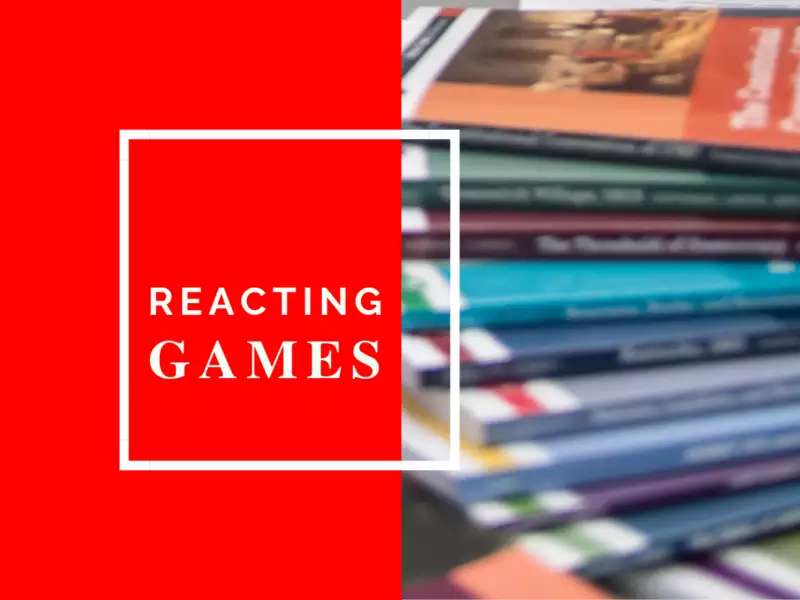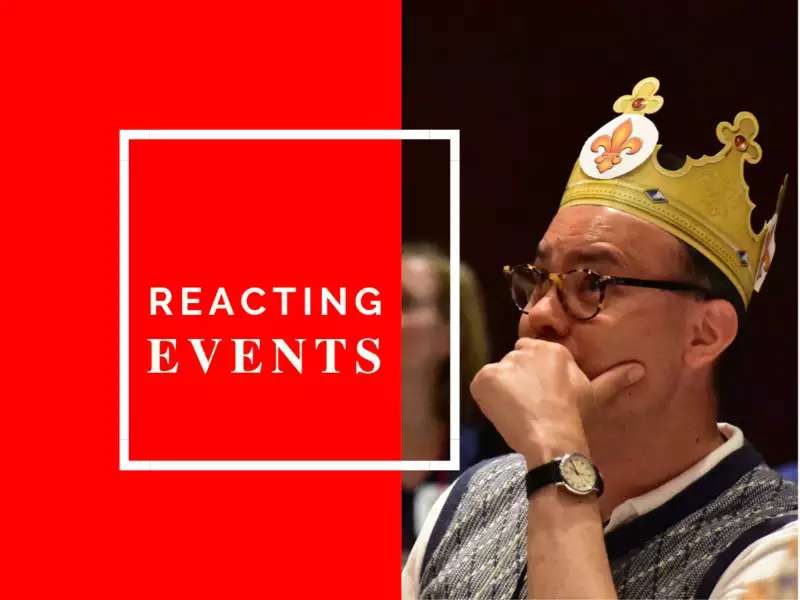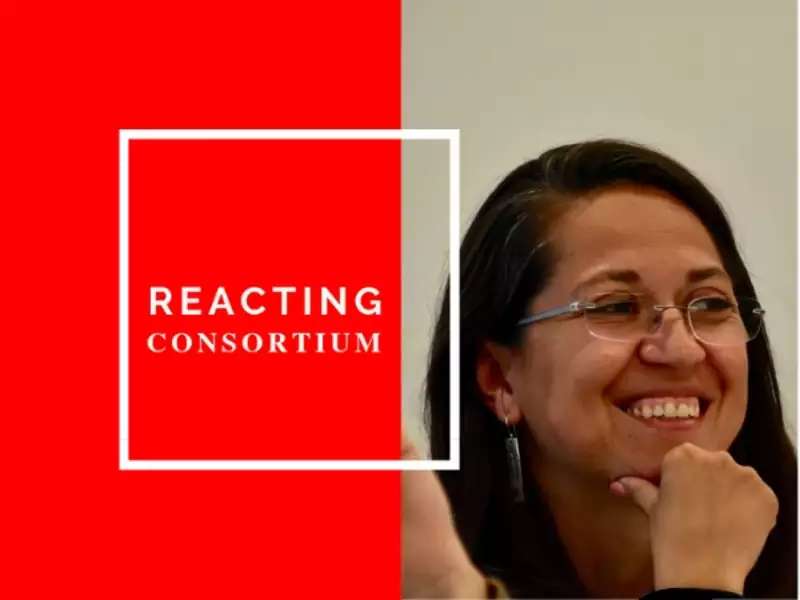
Reacting to the Past offers nearly 30 published titles, as well as dozens of games in development.
ENGAGE. IMAGINE. INQUIRE.
WITH REACTING TO THE PAST.

Reacting to the Past offers nearly 30 published titles, as well as dozens of games in development.

Learn about Reacting and connect with colleagues at our conferences and events. The best way to understand the pedagogy is by experiencing it!

Join this community committed to promoting imagination, inquiry, and engagement in teaching and learning. Membership benefits include access to game materials, conference discounts, and more.
Reacting to the Past is an active learning pedagogy of role-playing games designed for higher education. In Reacting to the Past games, students are assigned character roles with specific goals and must communicate, collaborate, and compete effectively to advance their objectives. Reacting promotes engagement with big ideas, and improves intellectual and academic skills.
Class sessions are run by students. Instructors advise students, and grade their oral and written work. Reacting roles and games do not have a fixed script or outcome. While students are obliged to adhere to the philosophical and intellectual beliefs of the historical figures they have been assigned to play, they must devise their own means of expressing those ideas persuasively in papers, speeches, or other public presentations. Students must also pursue a course of action to try to win the game.
Every game includes the following components:
—Larry Carver, Director of the Liberal Arts Honors Programs, University of Texas at Austin
—José Bowen, President & Professor of Music, Goucher College
—Eric Orlin, Professor of Classics, University of Puget Sound